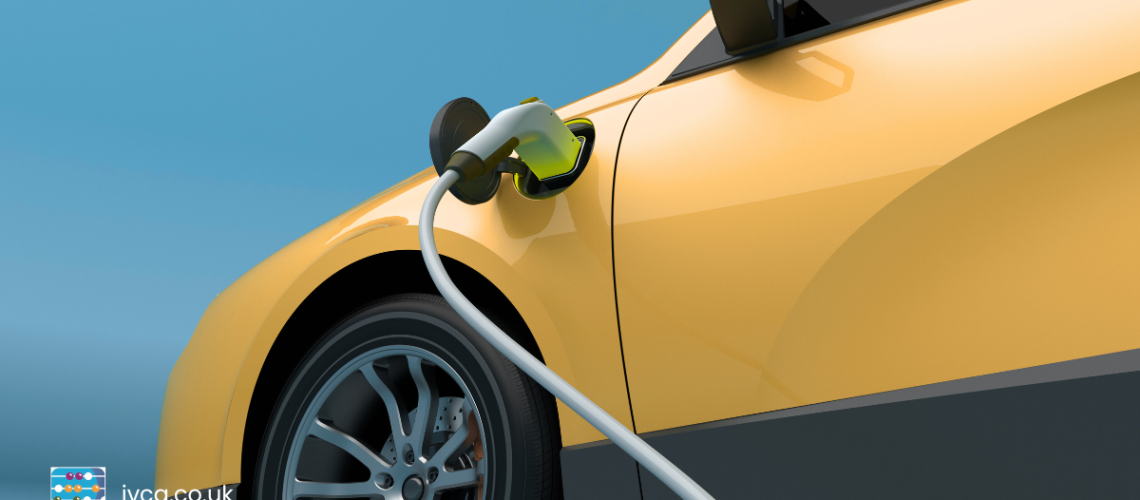Yes, you heard me right…You’ve seen the electric vehicle (EV) of your dreams, and you want to get it a bit cheaper? Well, now you can with the taxman’s help!
“Whaaaat?” I hear you say. No, the price doesn’t change; it’s how you set things up that makes the difference.
If you’re a director or employee and can choose your company car, or if your company is willing to run a salary exchange scheme, then getting a green and tax-efficient EV car on a salary sacrifice could be your best move.
Getting an EV car on a salary sacrifice (how it works)
Salary exchange (sometimes called salary sacrifice) is a straightforward idea: you give up a slice of your salary and your employer uses it to pay for something on your behalf, in this case, your electric car.
Normally, company cars aren’t a great deal because of the hefty tax hit. With EVs, however, it’s different. The benefit-in-kind (BiK) tax rate for fully electric cars is 3% for 2025/26 and increases by 1% per year Yes, you read that right, just 3%.
That means instead of being taxed heavily for a gas-guzzler or on the salary you have swapped, you’re taxed on just 3% of the car’s value. It’s one of the few times the tax system actually works in your favour.
A real-world example for 2025
Let’s say you fancy a Tesla Model 3 Rear-Wheel Drive. It has a RRP range of £39,990 to £59,990, and you can lease one for roughly £546.32 a month (depending on the contract length and mileage).
If you’re a 40% taxpayer:
- You’d pay about £480 a year in BiK tax.
- If you salary exchange £590 a month (£7,080 a year), you save around £2,832 a year in income tax and national insurance.
- After the BiK charge, you’re still about £2,500 better off per year.
Not bad for driving around in a brand-new EV!
Your employer wins too. They’ll save on employer National Insurance contributions because your salary is lower (about £1,062 on the salary sacrificed, which is a net saving of approximately £882 pa). And, if they are VAT-registered and the car is leased, they may also be able to save half of the VAT paid on the car lease – which would be around £588 pa.
It really is a win-win!
You save £2,500 per year and your employer saves £1,470 in tax – result!
| Need help setting up a salary sacrifice scheme? Contact us at [email protected], and we will handle everything for you so you can start saving. |
Some things to watch out for
- Your Gross Salary Decreases: Once you commit to a salary exchange, your gross salary drops. That can impact things like mortgage applications and pension contributions. It’s not a deal-breaker, but it’s worth thinking about before you sign on the dotted line.
- All-Inclusive Packages: Many salary sacrifice schemes offer comprehensive packages that include insurance, maintenance, and breakdown cover, providing further convenience and potential savings.
- Upcoming Tax Changes: From April 2025, electric vehicles will no longer be exempt from Vehicle Excise Duty (VED). New EVs will pay £10 in the first year and £195 annually thereafter. Additionally, EVs with a list price over £40,000 will be subject to the Expensive Car Supplement of £425 per year for five years.
- Not All EVs are Created Equal: All fully electric cars have a 3% Benefit-in-Kind taxation rate, but not all of them have a worthwhile range! Some cheaper models have a range that’s more suited to nipping to the shops than long-distance business travel. So if you’re setting up UK employees for an overseas company and need them to rack up the miles, make sure the car’s range can actually support their workload.
Setting up UK employees for an overseas company
If you’re setting up UK employees for an overseas company, offering an EV car on a salary sacrifice scheme could be a smart, attractive perk. It shows you’re serious about sustainability and about making your employees’ money work harder.
When expanding into the UK, every benefit you offer counts. A well-structured salary exchange scheme can help recruit and retain top talent, and it aligns with the UK’s strong government push towards net zero.
Just make sure the structure complies with UK tax law, the employment contracts are watertight, and that employees understand the full picture. If you want the scheme to be a genuine benefit and not a confusing headache, it needs to be clear, simple, and set up properly.
Quick EV tips if you’re thinking ahead
- Public EV charging infrastructure in the UK is improving, but it is still patchy in rural areas.
- Home charging grants are available for renters and flat owners under the EV Chargepoint Grant scheme.
- Electric company cars are now subject to the lowest vehicle tax rates (as of 1 April 2025).
If you’re setting up UK employees for an overseas company, keeping an eye on these changes means you stay ahead of the curve.
Why salary exchange and EVs make sense
Getting an EV car on a salary sacrifice scheme is one of the few genuine tax breaks still standing. So, whether you’re a director or an employee and you’re serious about saving money, reducing emissions, and setting up UK employees for an overseas company in the right way, it’s an option worth exploring.
Need help sorting out a salary exchange scheme that actually works for you and your business? Get in touch at [email protected] and we’ll get you moving in the right direction.






